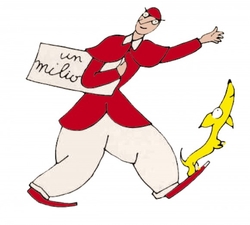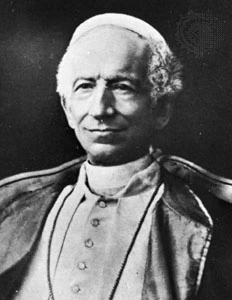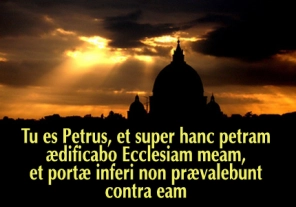Daily Archives: February 20, 2013
The Schoenborn Reblog..
One might agree that 600 odds churches are an awful lot for a city of 1.3m inhabitants, even if these inhabitants are – nominally, at least – very largely Catholic.
Still, it can’t be denied the newly announced project to reduce them to around one-quarter smells of decline, or better said decay. One could also say there was obviously a time where there was need for all the 600-odd churches; but that was before the “spirit” began to “inspire” the Church and, therefore, does not count.
The official mantra is that every one of the surviving churches will have several priests and several
masses a day; but a moment of logic reflection will lead us to conclude that the situation will not be a long-lived one, with the structure already downsizing in prevision of the decline in both priests and mass attendance to be expected in the years to come…
View original post 141 more words
Why I Prefer An Italian Pope
I herewith declare very openly that I wish the next Pope to be Italian. Like most Italians, I regard an Italian Pope as something natural, and fitting. Italy has given the papacy a great number of excellent Popes, and one can legitimately say the Country has served the Church well. Besides, I can’t escape the impression Italians are more likely to have that common-sense approach, the so typical attitude you see in the population, traditionally hard on the defence of the rules, and soft with human weakness. I might go as far as to say that Italians have been so frequently in charge in the last centuries, because the traditional character traits make them so eminently suited for the job.
In short, what the Duce called “un popolo di poeti, di artisti, di eroi, di santi, di navigatori, di trasmigratori” is also, and blessedly so, a people of great Popes.
It is difficult to explain this to a foreigner living abroad, but I am absolutely confident this subtle difference, this “Italian approach” is very evident to every foreigner who has lived in Italy for some years. Italians have a no-nonsense approach given to them in the cradle, nurtured from the earliest years and underpinned by a remarkable similarity in the way they see life and in the values they share; all of this, make no mistake, shaped by a Catholicism utterly without religious rivals worthy of mentioning from time immemorial. It is the kind of mentality that mocks, say, even (for an Anglo-Saxon; Italians wouldn’t say “even”) vegetarians as funnily pathetic nutcases, but has a kind and soft approach even to the people it mocks. It is also, put in a different way, a sure-footed instinct for what is relevant, and for leaving aside inflexibility and exaggerations.
Just to make an example – I do not say it to criticise anyone; merely to point out differences in mentality and culture – on a well-known religious blog run by a priest I have read this question:
Do insect products count as meat products, and therefore prohibited on Fridays and other days of abstinence. I have heard of some instances where it may be used in artificial color products. Any help on this matter would be greatly appreciated.
I needed a couple of seconds to digest the question, and to even understand what was meant by it, so much is the question away from our thinking. Mind, I am sure the person who posed the question is a sincere Catholic; but in a circle of Italians this would have caused a burst of hilarity, and would have been remembered for years afterwards. Even the most orthodox Popes of the past (like Pius X or Pius XII) have probably spent an entire life without the question ever coming to their consciousness, and would have been rather worried for anyone having such problems.
This is exactly what I mean for sure-footed instinct: an orthodoxy that is, naturally, never Puritan, or lost in little details, or over-preoccupied, or over-complicated. Not so, alas, in countries where Protestantism plays or has played a role; so much so, that the question above,which sounds disturbingly ridiculous in Italy, would probably appear rather natural, if a bit on the picky side, in countries more influenced by a rigid Protestant culture.
Obviously, in the strange and disturbing times we live in even an Italian Pope could get it completely wrong, and you only need to search on this blog “Archbishop Paglia” to become fully aware of what kind of people are at present walking down the extremely beautiful corridors of the Vatican. Still, ceteris paribus I’d say the Italian would be the safer bet.
And now that I have finished to anger the vast majority of my seventeen readers, the only thing that remains to do is to look for a good trench and bury myself within .. 😉
Mundabor
Lent: Some Words From Dom Guéranger.
From the always excellent Ars Orandi, a treasure trove of Catholic wisdom and beauty – not only the texts are excellent, but the magnificence and quality of the images published is simply way above what I have seen anywhere else – a short but extremely fitting excerpt from Dom Guéranger.
You can do much worse than visit this exemplary blog regularly.
Mundabor
—-
From
The Liturgical Year
by Dom Guéranger, O.S.B.The prophet, speaking to us in God’s name, assures us that, if we sincerely desire our conversion, we shall find mercy. The infinite distance which lies between the sovereign holiness of God and the soul that is defiled by sin is no obstacle to the reconciliation between the creature and the Creator. The goodness of God is omnipotent; it can create a clean heart in him that repents, and where sin abounded it can make grace abound more than ever sin abounded. The word of pardon will come down from heaven, like plentiful rain upon parched land, and that land will yield a rich harvest. But let the sinner give ear to the rest of the prophecy. Is man at liberty to accept or refuse this word that comes from heaven? May he, for the present, neglect it, in the hope that he will give it a welcome later on, when his life is at its close? No; God says to us by the prophet: “Seek ye the Lord, while He may be found; call ye upon Him, while He is near.” We cannot, therefore, find the Lord just when it suits our fickle humour; His nearness to us is not always the same. Let us take heed; God has His times; the time for mercy may be followed by the time for justice. Jonas went through the streets of the proud city, and cried out: “Yet forty days, and Ninive shall be destroyed.” Ninive did not allow the forty days to pass without returning to the Lord: she put on sackcloth and ashes, she fasted, and she was spared. Let us imitate the earnest repentance of this guilty city; let us not set divine justice at defiance by refusing to do penance, or by doing it negligently. This Lent is, perhaps, the last God’s mercy will grant us. If we put off our conversion, God may refuse us another such opportunity. Let us meditate upon these words of the apostle, which repeat the truth told us in today’s Epistle: “The earth that drinketh in the rain which cometh often upon it, and bringeth forth herbs, meet for them by whom it is tilled, receiveth blessing from God; but that which bringeth forth thorns and briars is reprobate, and very near unto a curse, whose end is to be burnt.”
—–
Shut It
I like those Fifty-style pictures with a punchy caption below. You see them on sale in several places in London, and probably elsewhere (though I never saw them in Italy or Germany; my bad, I am sure).
I like the old-school, conservative aura they have. Unfortunately, the caption of those sold in shops is often vulgar or irreverent; this spoils the pleasant conservative effect of the image, which probably is in these cases the desired effect.
This one, though, is very fine.
I have it from The Hermeneutic of Continuity and I think it very fitting for the coming days and weeks.
You may want to email the image to your friends, either to share a laugh or perhaps to make a point with them in a humorous but rather forceful manner.
Mundabor
Possibilities
I chanced to read this old blog post concerning the Heresy in Austria again.
In this post, I made three hypotheses about what would happen after the very clear papal words.
I leave it to you to decide which of the hypotheses proved right.
Oh Lord, please give us a strong Pope.
Mundabor






















You must be logged in to post a comment.